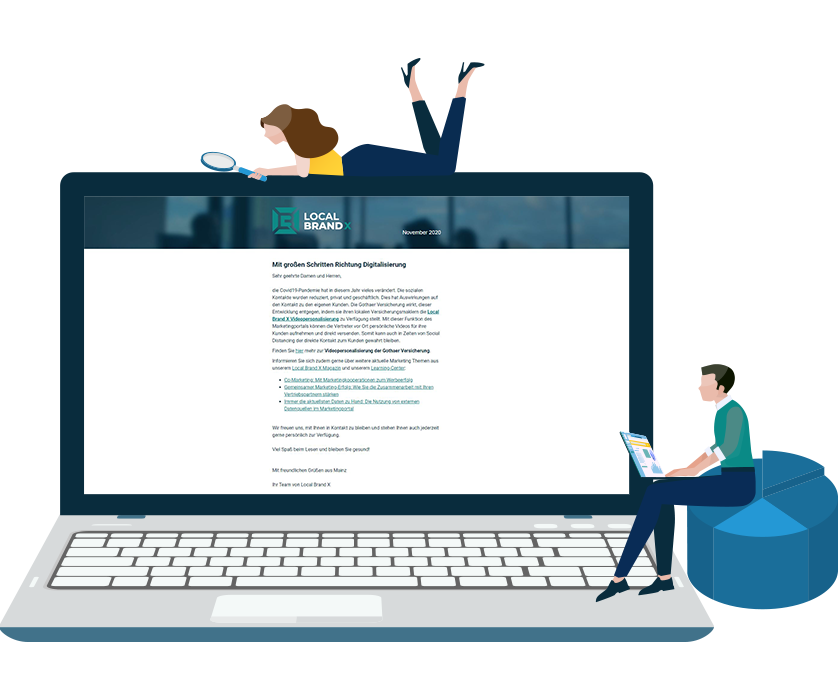Bleiben Sie auf dem Laufenden!
Melden Sie sich für unseren monatlichen Newsletter an und verpassen Sie keine Neuigkeiten zu aktuellen Marketing-Themen mehr.

Algorithms and the use of artificial intelligence have long ceased to be visions of the future. They have long been a common trend topic in many areas of the economy, such as autonomous driving of cars and the healthcare industry. It tries above all to guarantee a higher quality and reliability of the offered services. However, this development can no longer be ascertained only in technical areas; artificial intelligence is also becoming increasingly important in sales and marketing.
The basis of all these developments is the fact that it is now possible to store and process a very large amount of data systematically. This big data analysis and the possibility of using machine learning - the systematic learning of algorithms - to draw more and more clues from the data makes it possible to drive target group-specific and as efficient as possible marketing strategies. The storage of data has increased explosively in recent years and is now automated and has become an almost everyday part of online marketing, which, however, is not yet used efficiently due to the lack of software. With every new customer and user of a website, an algorithm learns new patterns of action and can understand as exactly as possible how customers behave. This knowledge in turn can be used to apply marketing measures as efficiently and personalized as possible.
The advantages of artificial intelligence that arise from it:
Algorithms can currently be used primarily in three areas of marketing: in the area of the product, the price and the promotion. By analyzing data volumes, products and services can be adapted to the needs of customers and can be specifically recommended. The price of the product can also be calculated dynamically, depending on the supply and demand. Companies that already use this include Amazon, flight comparison sites and the taxi platform Uber. Based on the available drivers, the current demand and the traffic situation, a daily updated price for the journey sought is calculated. In addition, products can be targeted to potential customers through individualized recommendations and advertised as effectively as possible. This happens above all in online shops and streaming services such as Netflix and Co. Here, the films and series presented are selected based on their previous use and proposed individually for each viewer. This type of ranking is also used on social media such as Facebook and Instagram, where the published articles in the news feed are ordered and displayed based on the calculated and predicted interests of the user.
Potential customers can be confronted with products on all of these platforms. Using the monitoring of all conceivable points of contact, such as social media, the website and online banners on non-company websites, it can be determined which touchpoints lead most quickly to a purchase intention. Based on these observations, for example, the Otto Group creates its marketing strategy individually for its customers.
All these examples show that with the help of artificial intelligence and the targeted use of algorithms, marketing measures can be used as time and cost-efficiently as possible in order to adapt the strategies to customers even more individually in the future. It remains to be seen what the future holds in the field of artificial intelligence.

Melden Sie sich für unseren monatlichen Newsletter an und verpassen Sie keine Neuigkeiten zu aktuellen Marketing-Themen mehr.